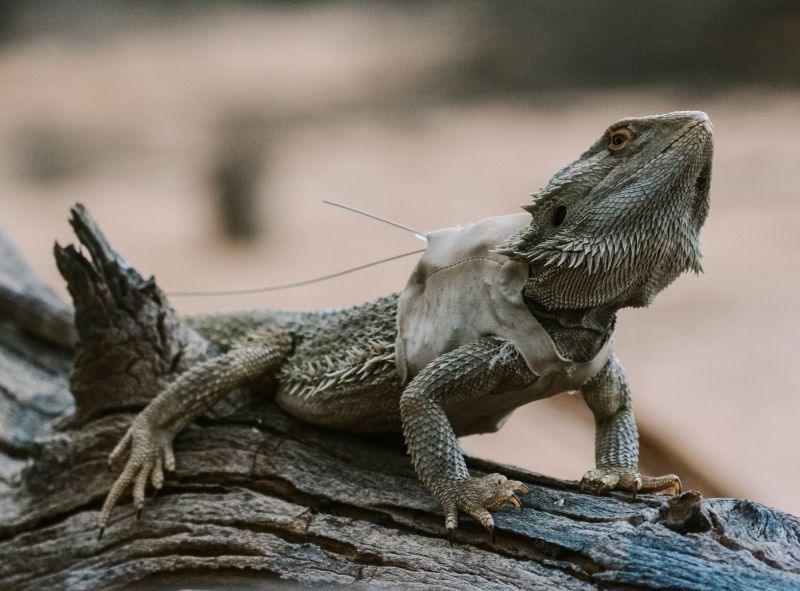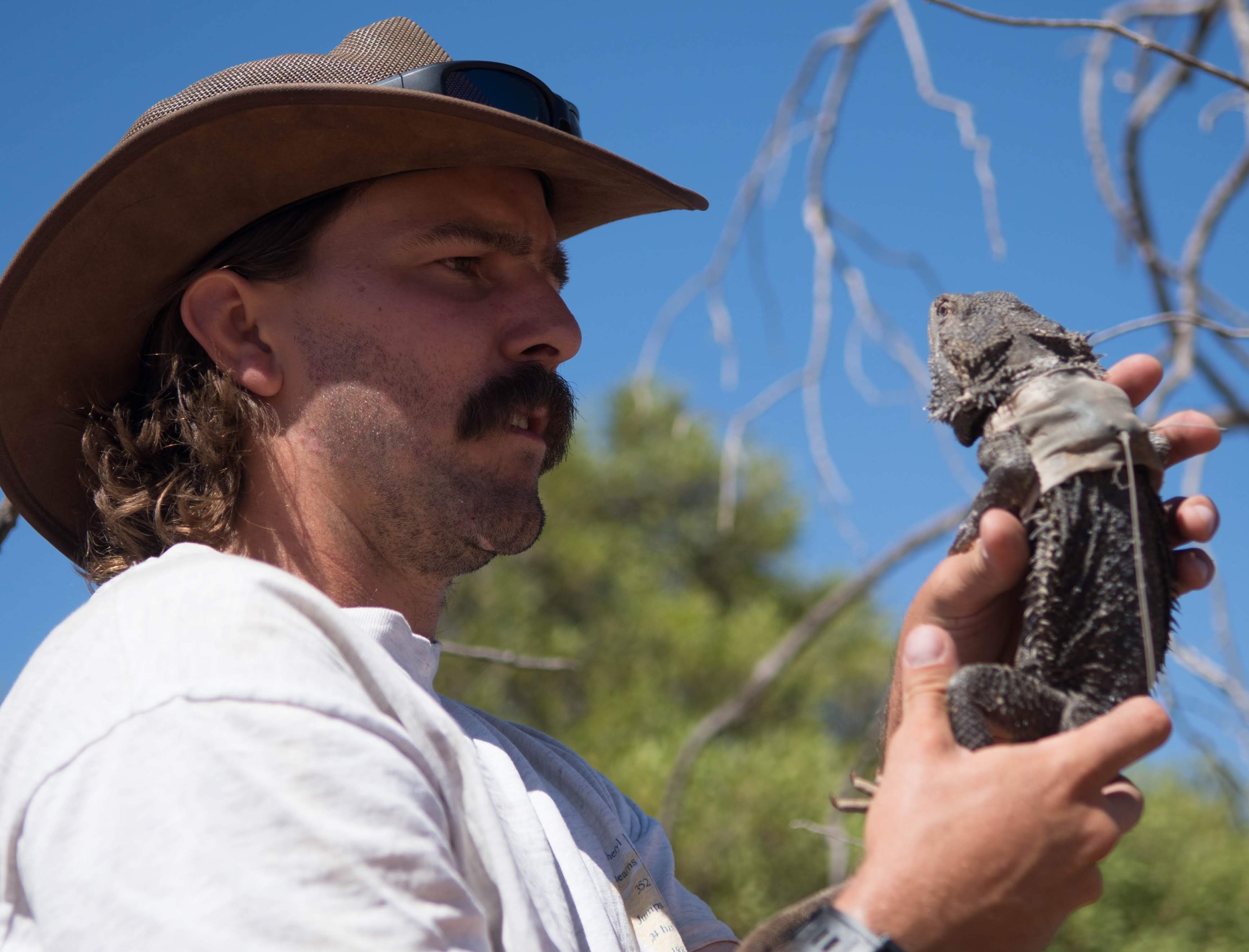Researchers put tiny backpacks on lizards and made a bleak discovery
When it comes to survival in the animal world, many people would assume the faster animals fare better.
But a new study led by a University of Melbourne researcher turns this assumption on its head, revealing being too speedy may make Australian central bearded dragons more vulnerable to predators.
The surprising find comes off the back of a year-long study where the lizards were studied in their natural environment and wore tiny fitness trackers.
READ MORE: Depression linked to unexplained 'jet lag' symptoms in new study

The small, high-tech devices contained tiny accelerometers and temperature-sensing radio transmitters to feed back data on the lizards' body temperature and acceleration.
Similar to other lizards, the bearded dragons rely on external heat sources to regulate body temperature to grow, digest food and reproduce effectively.
"Our study confirmed that these dragons are indeed masters at optimising behaviour according to seasonal shifts in air temperature," Dr Kristoffer Wild said.
"Data showed the lizards strategically moving between sunny spots and shady retreats in a delicate balancing act called behavioural thermoregulation."
READ MORE: Radical three-way IVF could end horrific disease passed on to babies

During the study, Wild said the research team looked at the dragons' optimal temperature for achieving peak speed and how speed related to survival outcomes.
The data, which was published this week in the Journal of Animal Ecology showed that lizards with higher speeds had a greater risk of mortality.
"What we believe is happening is that speedy lizards are engaging in riskier behaviours, such as moving around more openly and frequently, making them vulnerable to predators like birds and cats," Wild said.
"We found that increased risk was especially pronounced during spring, so this would make sense with dragons moving around a lot more looking for mates.
"These findings highlight an important ecological reality, what is measured in controlled lab environments doesn't always reflect what is happening in real-world environments.
"This research reminds us that in the wild, survival isn't just about physiology, but is deeply intertwined in the interplay with behaviour, predation risk and environmental variability."
DOWNLOAD THE 9NEWS APP: Stay across all the latest in breaking news, sport, politics and the weather via our news app and get notifications sent straight to your smartphone. Available on the Apple App Store and Google Play.












